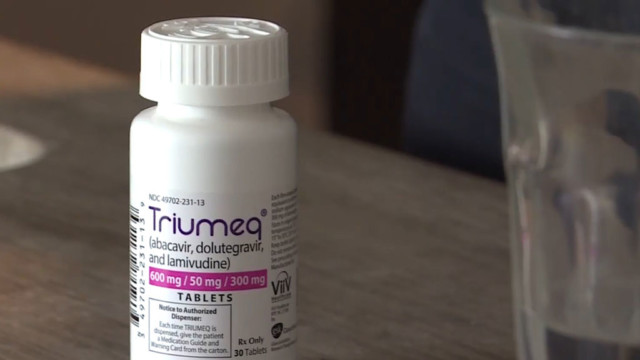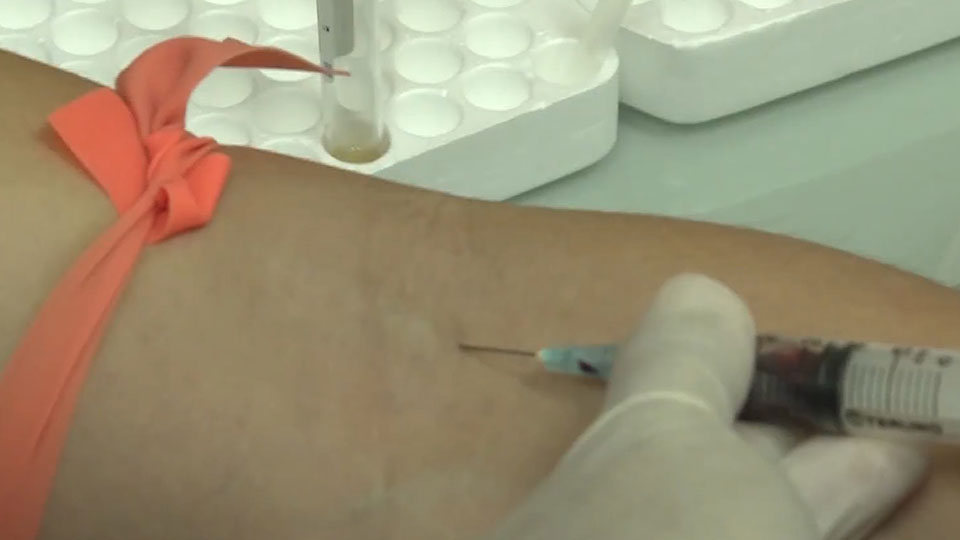An HIV/AIDS diagnosis used to be a death sentence. That was more than thirty years ago—when there was no effective treatment. Now, some revolutionary news. The medical community confirmed this year that if the amount of HIV in your blood is undetectable you can’t transmit the virus. The implications for more than 36 million HIV-positive people worldwide couldn’t be greater. CGTN’s Karina Huber reports.
Bruce Richman was diagnosed with HIV in 2003. He thought it was a death sentence. It wasn’t—thanks to advances in medication. But then he was gripped by another fear. “I felt like a bio hazard. I felt toxic,” said Richman. “I felt that I couldn’t be comfortable with someone who I cared about while I had this disease and I felt like this would be – this would be forever – that I wouldn’t be able to have a relationship. The possibility of love just kind of closed off.”
At the age of 34, he slipped into a depression. He even refused to take the life-saving medication. “I had delayed for seven years, because I didn’t want to start treatment and taking a pill every day that would remind me I had HIV,” said Richman. But when he got really ill he had to face reality. He started medication. Since then, he’s been taking one antiretroviral pill every day and is now undetectable.
An undetectable viral load is defined as having less than 200 copies of the virus in one milliliter of blood. Experts say those who take their medication religiously have a greater than 90 percent chance of suppressing the virus to a below detectable level.
In 2008, there was good news. HIV experts in Switzerland, concluded that people who are undetectable cannot transmit the virus, but the world wasn’t convinced then. Almost ten years later it is. “You can show very clearly that the virus just does not get transmitted when a person’s viral load is below detectable and that’s the reason why most recently we have been going with the saying, which is true, that when you’re truly undetectable, then you’re truly untransmissible,” said Anthony Fauci, Director of the National Institute of Allergy and Infectious Diseases.
Dr. Fauci, is one of the world’s leading experts on HIV. He first went public with statements like that in July 2017 at an international conference. In September, The U.S.’s Centers for Disease Control and Prevention did the same. “Just saying this message is revolutionary, because we’re going against 35 years of fear of HIV and people living with HIV,” said Richman.
Richman started an awareness campaign called “Undetectable = Untransmittable” last year. It’s come a long way. In just a year, he says over 500 organizations in 68 countries have adopted the guidelines.
But despite the backing of the world’s leading experts and numerous large-scale studies showing not a single transmission from someone who was undetectable, challenges remain in convincing caretakers, the public and even those with HIV. “I feel like it’s good news, but be careful,” said Doretta Gadsden. Gadsden is a nurse who has been HIV positive for 24 years. She has concerns about the new message. “Yes, it’s not ugly like it used to be. HIV is not the monster that it used to be, but it still could give you some headaches. It still could make your immune system – open you up for other ailments – other STDs. So, I think everybody is losing sight of that,” said Gadsden.
She’s also worried some people’s viral loads won’t be truly suppressed and they’ll transmit the virus if they don’t use protection. That’s why she’s sticking with condoms. “I could talk to you a year from now and I might change my mind but right now…uhuh,” she said.
Fauci says it is vital to stay on the medication and visit a doctor regularly. “You don’t want to take a situation where you just take a viral load once – it’s undetectable and then you say I’m good for the next five years. It doesn’t work that way. You’ve got to continue to monitor it,” said Fauci.
Richman agrees it’s important to be disciplined, but he hopes people won’t get paranoid and overlook the fact that this new chapter in HIV’s history is reason to celebrate. “It opens up this whole new world for people to have relationships and love and families. We’ve heard people say this gave me my womanhood back, this gave me a new lease on life, this information set me free.” said Richman.
 CGTN America
CGTN America


